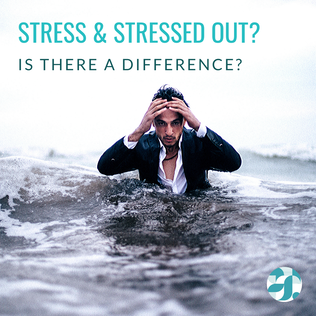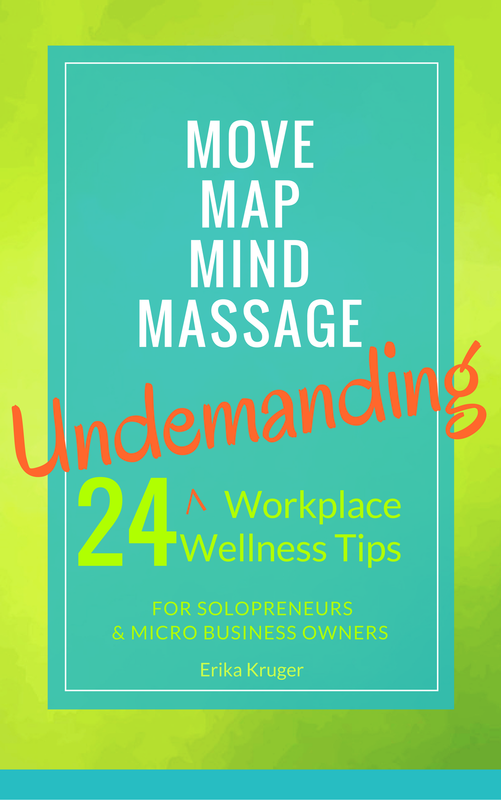|
A recent statement by a prominent, local politician that stress is a white man’ disease, caused some uproar in my country.
“I don’t get stressed," he declared. “Stress is a white man’s disease and that is why a term such as stress does not exist in the Zulu language." Overhere, where race is a very sensitive topic, most of the reactions to his statement centred around that aspect. But also relevant I thought, is the common mistake of mixing up terminology related to:
And this is where, I think, the politician got it wrong (although there was probably much more to the statement than a lack of physiology knowledge). Make no mistake, this is not the first time I have heard people confusing the two concepts ... whether the word appears in their dictionaries or not. So what is the difference between responding to stress and being stressed out?
The easiest way to explain it is that we all experience stress as a response to stimuli and if it overwhelms us and the stressful situation lasts a long time, we get stressed out.
WHAT IS STRESS? Stress is defined as an organism's total response to environmental demands or pressures. It is also known as the fight-or-flight response although lately scientists have begun differentiating between the way men react to stressful situations (fight or flight) and the way women response namely the tend and befriend response. According to Dario Maestripieri in Psychology Today: "when it comes to stress, women are different from men. Instead of getting ready to fight or to flee, women become more likely to express affiliative social behavior, either to befriend the enemy - if there is an enemy and is causing the stress - or to seek social support from their family members or friends". And the difference, a new study conducted in Australia suggests, may boil down to a single gene. The authors of this study argued that the SRY gene that men have on their Y chromosome - right between the gene for flipping through TV channels with the remote control and the gene for not putting the toilet seat down after peeing - causes their fight-or-flight response, while women use different genetic and physiological mechanisms to deal with stress. 
But that is a blog post for another day. Let's get back to stress response.
WHY DO WE NEED THE STRESS RESPONSE? We experience stress as a consequence of our interaction with something in our environment which then provokes the stress response. The stimulus can be a person, an object or an event even a thought or memory.
STRESS IS ALSO GOOD FOR US We do not always respond negatively to stress. A mild stress response that doesn't last a long time, is experienced as positive. It allows us to respond to a stressor as a challenge. It fills us with excitement, hope, inspiration and motivation to complete a task. It can inspire and improve cognitive function, life satisfaction and wellbeing. The important point to understand when considering statements like the politician's is that the stress response is an involuntary response.  We instinctively react to e.g. loud noises, bad smells, the aggressive tone in someone’s voice, the ring of a phone. We instinctively react to e.g. loud noises, bad smells, the aggressive tone in someone’s voice, the ring of a phone.
Since we cannot, not interact with our world, we instinctively react to e.g. loud noises, bad smells, the aggressive tone in someone’s voice, the ring of a phone.
Long before the information about the stimulus has reached our conscious mind, our autonomic nervous system, our endocrine system and immune system have already responded. Here is a simple example: Before you are able to figure out someone has just let off a firecracker next to you, you have put your hands over your ears to protect them.
WHAT HAPPENS WHEN WE RESPOND TO STRESSORS?
Once the body has identified a situation as threatening or stressful, the hypothalamus is activated. This structure at the base of the brain is in control of the stress response. It gets the process going by sending signals to two other structures namely:
In turn this sets off many other changes in the body to either mobilise or save enough energy to ensure physical strength and readiness to fight, flee or befriend the threat.
The body also prepares for possible injury by speeding up blood clotting while the cortisol controls swelling after injury by suppressing the immune system during this time. It doesn’t matter whether the stimulus is physical or emotional threat, the process is the same. And always it happens without us having to decide to allow it ... whether or not we have a word for it in our dictionaries.  Stressing out can make us feel overwhelmed and may end up affect our physical and mental health. Stressing out can make us feel overwhelmed and may end up affect our physical and mental health.
STRESSING OUT But, although this body-brain communication system is very effective at protecting us and helping us adapt efficiently to the world we live in, it also has a dark side. And here we have more ocontrol, not completely but some. We all differ in our physical and mental strength and our personal circumstances. We deal with physical and emotional stressors differently. Prolonged periods of the stress response strains our adaptive capacities, we feel overwhelmed , like we don’t have the resources to deal with it. It can end up affecting our health and wellbeing leading to lifestyle diseases like high blood pressure and obesity as well as mental conditions like depression. At this point the stress response is no longer our silent support but it becomes a problem in itself. So while stress is a good thing, being stressed out is not.
And while you can make lifestyle changes like taking up exercise and improve sleep hygiene or practice meditation or nurture your social support system to support your own ability to deal with stress response, you will never, as long as you are alive, be able to prevent the stress response from happening.
So sorry, Mr President, even you experience stress.
Stress itself is not what’s toxic. It’s our relationship to it that's the hazard.
― Lisa Cypers Kamen, Are We Happy Yet?: Eight Keys to Unlocking a Joyful Life
2 Comments
Anneri Victor
4/27/2017 10:05:39 am
Hi Erika, what an awesome post! If society only used the correct terms for good stress = eustress and bad stress = distress, then maybe it would be better understood, right? Also, I read the last line in your voice - its so typical you :-)
Reply
4/27/2017 05:12:19 pm
Thanks so much Anneri. I agree so may misunderstandings and misconceptions result from inaccurate use of terminology. And yes, although the man in question will not read my blog, I just had to tell him that :)
Reply
Leave a Reply. |
Erika KrugerI am Erika Kruger, self-care skills trainer & mentor. I am here for every person who realises that their wellbeing is THEIR business. Categories
All
|




